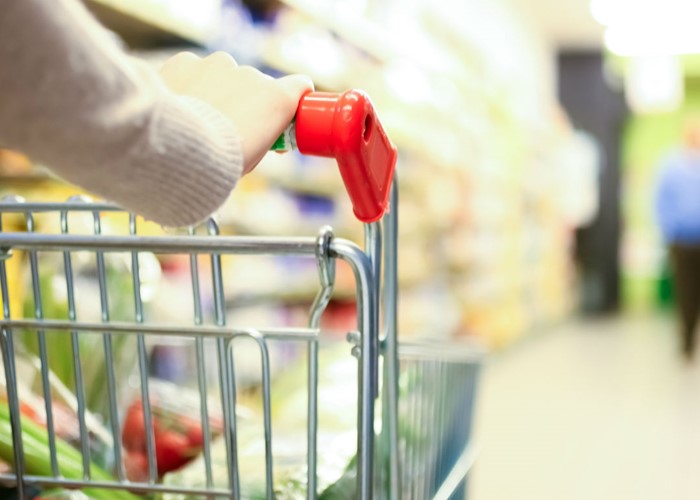Supermarket prices soar: Tesco worst offender, followed by Asda

Supermarket prices are rising at their fastest rate for four years with food inflation hitting 2.4% this month. So which supermarket is the worst offender?
The cost of your weekly food shop is rocketing, according to the latest supermarket price statistics.
Food inflation rose to 2.4% in August, the highest level since October 2013.
Tesco shoppers have been the worst affected, with prices up a hefty 3.4% year-on-year.
The next biggest rise was at Asda where they’re up 2.4%, followed by Sainsbury's (1.6%) and Morrisons (1.5%).
The Grocery Price Index (GPI) is collated by retail magazine The Grocer, which studies 62,000 products.
“Overall prices were up 0.5% on a month-by-month basis, suggesting the GPI is likely to continue to rise through the rest of 2017,” says The Grocer.
The biggest price increase was across meat, fish and poultry, up 4.65% since last year, while dairy product prices have risen by 2.6%.
Biscuits, sweets and snacks are now 3.5% more expensive than last year, and ready meals are up 2.9%.
The only price that fell was for soft drinks with an average reduction of 1.3%.
Earn rewards on your shopping with these credit cards
Prices go bananas
The end of a price war over bananas has seen the fruit’s price rocket over the past year, up 11.8%.
Bananas have been at the centre of a price war between the big supermarkets which saw prices fall to 64p a kilo last year, but prices started to rise last December.
Just last week Asda increased the price of its bananas by 5.5% to 76p a kilo with Sainsbury’s and Tesco following suit.
Poor weather and flooding in key banana growing areas such as Costa Rica and the Dominican Republic has also contributed to the price rises.
While it’s disappointing to see supermarkets hiking prices rising at such a rapid rate, there are steps you can take slash your grocery bill.
How to fight back
At loveMONEY we have loads of frugal shopping tips. For starters, you could take a look at our weekly roundup of the top offers at each of the big supermarkets.
For more long-term savings, here are some general tips on cutting your grocery bill.
Hate heading dow the shops? Have a read of our guide to saving on your online grocery order, as well as the cheapest supermarket delivery deals.
If you’d like us to look into any other area of grocery savings, drop us a line in the comments section below and we’ll look into it.
Finally, don't forget to pay for your shopping with a rewards credit card to earn incentives on things you had to buy anyway. Just don't forget to clear that bill in full every month!
Comments
Be the first to comment
Do you want to comment on this article? You need to be signed in for this feature